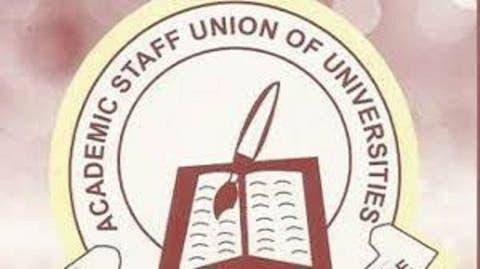
The Academic Staff Union of the Universities has accused the Federal Government of insincerity in implementing an agreement the two parties reached late last year. Does this portend another strike? Charles Abah.
A third-year Mass Communication student of the University of Lagos, Vincent Obia, was in his King Jaja hall of residence on Sunday evening preparing to go to class when his mobile phone beeped. His initial feeling on receiving the alert was that the money his uncle, Garuba, promised him had finally ‘arrived’.
Vincent’s uncle had promised to send him some pocket money to enable him to stay on campus and concentrate on his studies while the second semester examination lasts. Vincent was thus eager to read the message. But disappointment was the lot of the youngster as he accessed the text message. Instead of the expected “financial windfall” from his uncle, it was a different note from his childhood friend, Gabriel.
Gabriel, a Theatre Arts undergraduate of the University of Ibadan, had sent the text message to his friend to intimate him of the briefing held by the Academic Staff Union of Universities of the institution on Saturday in Ibadan.
In fact, the content of the message shows that ASUU members are not happy with the Federal Government over the implementation of the Memorandum of Understanding the two parties reached last December. Vincent, who initially felt bad for not receiving the “needed” text message from his uncle, had his psychological problems more compounded on reading Gabriel’s message.
His countenance changed immediately. By his calculation, he is looking forward to his final year in the university as soon as possible and wishes that nothing disrupts this plan. It is therefore not surprising that he wore a more pitiable look on comprehending his friend’s message.
“What is all this about? Are they planning to embark on another strike so soon? How many years will I spend in the university?” These and many questions occupied the young lad’s inner recesses.
Indeed, when last December 17 ASUU called off its six-month strike, many Nigerians, particularly students, heaved a sigh of relief that, at last, peace would eventually reign in the nation’s public universities.
Of course, they had every reason to hold this view, since the last strike by university teachers lasted for 169 days. The action started on July 1 and ended December 17, 2013.
But the ASUU’s disclosure in Ibadan on Saturday seems to once again want to threaten the fragile calm in the nation’s public universities. The union members want Nigerians to urge the Federal Government to comply with the agreement the two parties signed on December 11, 2013. Accusing the Goodluck Jonathan administration of insincerity, they say it is not respecting plan for the implementation of the pact, especially the segment that borders on the funding of the universities.
According to ASUU’s National Treasurer, Dr. Ademola Aremu, the government has not kept its part of the bargain despite the assurances it made before the suspension of the strike. He says, “It is becoming disturbing to the union that despite signing papers (MoU) and calling off the strike, allocation of the funds reportedly deposited at the Central Bank of Nigeria for execution of needs project of Nigerian universities has yet to commence – two months into the 2014.”
He stresses that apart from the non-victimisation clause so far honoured, the FG has yet to implement the funding aspect of the agreement.
Aremu is not alone in crying aloud for attention. The ASUU-UI chapter Chairman, Dr. Olusegun Ajiboye, also accuses the FG of foot-dragging in the implementation process, saying students have yet to benefit from the last strike.
According to him, nothing has changed in all the public universities. He says the union is “tired of earmarking instead of eye-marking funds for projects execution in the universities”.
Before ASUU called off the strike last December, the FG had promised to inject N1.3tn to fund the public universities.
Following a meeting with President Goodluck Jonathan, the government agreed to inject the sum into public universities between 2013 and 2018.
The FG also promised to inject N220bn yearly into the public universities, beginning from 2014. However, for the remaining part of 2013, it agreed to domicile N200bn in a special account at the Central Bank of Nigeria.
The government, which promised to domicile the N1.3tn at the apex bank to show its commitment to the agreement, also pledged to release the money on a quarterly basis to the universities to cater for the funding of the sector.
The two parties also agreed that the National Universities Commission and the Trade Union Congress would be the joint guarantors of the agreement while the minister of education would be the implementing officer.
But accusing the FG of insincerity, Aremu notes that the FG ought to have initiated the process of depositing an additional N55bn for the first quarter of 2014 as agreed in the MoU.
Reacting to the development, an education consultant, Mr. Peter Ogodoro, says the blame for not honouring the pact need not go to the government alone. He notes that ASUU was too persistent in its demands, not considering the accumulated economic challenges that the nation faces.
However, another educationist, Dr. Olusegun Omisore, thinks otherwise. According to him, the authorities do not respect agreements and so it will be strange for them to honour the last deal with ASUU.
He adds, “The paltry annual allocation to education in the country shows the considerations the authorities give to the sector. Education is getting secondary or even tertiary attention here. The country’s leadership is not taking it seriously and this is amazing because the President is an intellectual. For me, he should look at the sector as one of his immediate constituents.”
Noting that a breach in the agreement will further throw the nation’s public universities into a state of hopelessness, he counsels that the interest of the students should receive utmost consideration. He adds that toying with education will be akin to playing with the future of the country.
For Prof. Kayode Soremekun of the Covenant University, Ota, Ogun State, that ASUU has raised the alarm is a warning signal for the government to do what is right. The professor of International Relations also enjoins the Committee of Vice-Chancellors to live up to its responsibilities, saying the committee should be the whistle-blower instead of ASUU.
According to him, the vice-chancellors are the official managers of resources in the universities and if they keep quiet over this, then it is a “disgraceful silence.”
But beyond the suspicion of the alleged insincerity, Ogodoro urges all stakeholders to be involved in resolving the crisis in the sector, declaring that the problems of university education are not for ASUU alone to solve. Omisore also holds the view that the country’s education requires emergency operations in order to solve its myriad of problems. He says, “We need to truly engage our children and youths instead of brutalising them.”
But the Federal Government has denied reneging on the MoU reached with the union.
In an interview with one of our correspondents, Simeon Nwakaudu, who is the Special Assistant (Media) to the Minister of Education, Nyesom Wike, says, “It is not true. The Federal government is following the implementation of the agreement and ASUU is part of the implementation monitoring committee.
“Funds are with the universities; it is not ASUU that is implementing it. The monies are paid to the respective universities which are implementing the agreement.
“The universities are doing their procurement now for funds that have been released. When they conclude their procurement, the next tranche will be released.”
Nwakaudu says the implementation is at the different levels in various institutions.
“As you are aware none of the universities has said fund has not been released to it. The exact amount has been released as due. There is no cause for generating tension in the system”, he adds.



